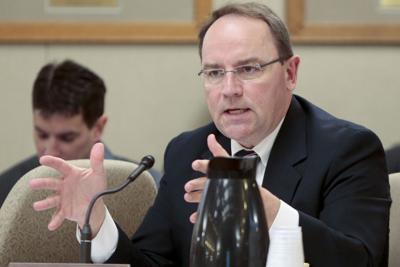In January of 1944, as the United States entered the third year of fighting against fascism abroad, President Franklin Roosevelt turned his attention to the fight against fascism at home. To that end, FDR proposed an Economic Bill of Rights that he said was essential to assuring that the U.S. would never go the way of Germany or Italy.
“We have come to a clear realization of the fact that true individual freedom cannot exist without economic security and independence,” explained the 32nd president. He warned, "Necessitous men are not free men," and observed, “People who are hungry and out of a job are the stuff of which dictatorships are made.”
Roosevelt’s understanding of the threat that hunger posed to freedom — along with the danger a wealth-dominated oligarchy posed to American democracy — made an impression on a young member of the U.S. House who, 20 years later as president of the United States, would propose the Food Stamp Act of 1964 as part of a broader war on poverty.
Explaining why he chose to describe the anti-poverty crusade as a “war,” President Lyndon Johnson said, “On similar occasions in the past we have often been called upon to wage war against foreign enemies which threatened our freedom. Today we are asked to declare war on a domestic enemy which threatens the strength of our nation and the welfare of our people.”
Poverty, said Johnson, was “the most ancient of mankind's enemies.” And hunger was poverty’s cruelest expression. So how could anyone argue against a program to alleviate it?
As it happened, there was opposition — from southern segregationists, most of them Democrats, and from their frequent allies, right-wing Republicans. But in those days, the Republican Party also included moderates and responsible conservatives, many of whom voted for the Food Stamp Act. One of them was U.S. Rep. Alvin O'Konski, a former teacher who represented northwest Wisconsin from 1943 to 1973 as a “modern Republican” in the spirit of former President Dwight Eisenhower.
There were plenty of issues on which O’Konski parted ways with LBJ. But he knew there were goals on which Democrats and responsible Republicans could agree. And feeding schoolchildren, elderly folks on fixed incomes and working-class people who were struggling to make ends meet was one of them.
In O’Konski’s time, as in ours, there were rich people who did not want to pay taxes. But O’Konski and Republicans like him recognized that if the choice was between doing the bidding of the wealthy pretenders to oligarchy or feeding hungry folks in northern Wisconsin, it was better to feed the hungry.
The Wisconsin counties that Alvin O’Konski once represented are now the political domain of Rep. Tom Tiffany, a rubberstamp Republican who takes his orders from House Speaker Mike Johnson, R-Louisiana, and the billionaire campaign donors who pay for GOP campaigns.
Tiffany voted last week to slash $300 billion in funding for the Supplemental Nutrition Assistance Program (the successor to the Food Stamp program) along with an estimated $625 billion cut for Medicaid. Why? Tiffany, who is thinking about making a run for governor, wants to be on the right side of the billionaire class that funds GOP campaigns. So he backed the GOP leadership's “big beautiful bill," which President Donald Trump and Johnson designed to fund massive tax giveaways for those billionaires.
“Under the Republican budget bill, the poor will get poorer and the rich will get richer,” explains U.S. Rep. Mark Pocan, D-town of Vermont, who proudly opposed the measure.
But this goes beyond economics. By moving the United States another step toward the wealth-dominated oligarchy that FDR warned against, Tiffany and his fellow Republicans made American less equal, less free and more vulnerable to “the most ancient of mankind's enemies.”






